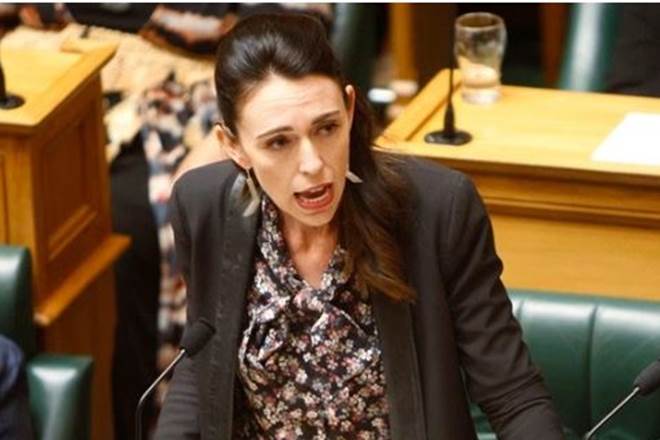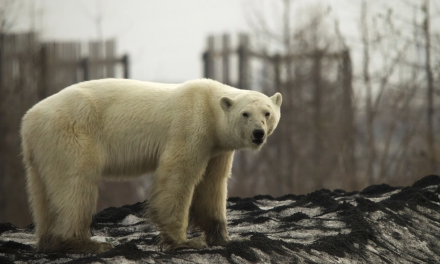New Zealand’s zero-carbon bill passed in parliament with historic cross-party support. The bill commits the country to new climate change laws and to reduce its carbon emission to zero by 2050 in line with the Paris climate agreement.
The climate change response (zero-carbon) bill passed on Thursday by 119 votes to one with the centre-right opposition National Party’s support, despite none of its proposed amendments being accepted.
Prime minister Jacinda Ardern told MPs that New Zealand was going to be on the “right side of history”.
“I absolutely believe and continue to stand by the statement that climate change is the biggest challenge of our time,” she said.
“Undeniably, our sea levels are rising, and undeniably, we are experiencing extreme weather events – increasingly so. Undeniably, the science tells us the impact there will be on flora and fauna, and yes also the spread of diseases in areas where we haven’t previously seen them.”
“We’ve led the world before in nuclear disarmament and in votes for women, now we are leading again,” said Climate Change Minister James Shaw.
This comes in just days after the U.S. President Donald Trump announced that he’s officially withdrawing from the Paris Agreement.
Shaw, on Twitter, said, “As a global community we should all be working together to ensure a safe planet for future generations. The rest of the world will continue to act on climate change. Europe, China, and the Pacific and the other will step up where the US is stepping back.”
New Zealand nature advocacy organization Forest & Bird called the bill’s passage an important first step but says the work is far from over.
“Now we need concrete, urgent, climate action to save our most vulnerable native species and restore native ecosystems,” Chief Executive Kevin Hague said in a statement. “Increased fires, storms, and sea-level rise could push our many endangered species over the edge.”
The loophole
The legislation passed mandates that in 40 years’ time, the country should produce no greenhouse gases, except methane (emitted by plant and animal sources) due to farming’s important role in generating foreign income. However, it still aims to cut 10% of biological methane by 2030, and up to 47% by 2050.
As greenhouse gases go, methane is a different beast from carbon dioxide. Methane in the atmosphere decays within decades, while CO2 stays in the atmosphere for centuries or longer. Methane traps about 30 times as much heat in the atmosphere as CO2 does.
Agriculture is the largest single source of greenhouse emissions in New Zealand, accounting for 48% of the country’s total in 2017.
What is zero-carbon and who else is doing it?
Zero carbon, also known as carbon neutrality, is a term used to describe the action of organisations, businesses, and individuals taking action to remove as much carbon dioxide from the atmosphere as each put into it. The overall goal of carbon neutrality is to achieve a zero-carbon footprint.
Currently, only two countries in the world are carbon-zero: Bhutan and Suriname.
Over 60 countries are committed to reducing their carbon emissions to net-zero by 2050, according to the United Nations. But those countries in 2017, accounted for only 11 percent of global emission.
That’s because the world’s biggest emitters are missing from the list, including the top three: China, India and the United States. However, multiple U.S. states have, including California, Washington and New Mexico.
Sizable emitters on the aspirational net-zero list include Britain, France and Germany — and the European Union is also considering such a goal, though coal-producing countries such as Poland have refused to sign on.
Most of the rest are small countries that have tiny carbon footprints yet are the worst affected by the ravages of climate change, like the Bahamas, the Maldives, and the Marshall Islands.
The small Caribbean island nation, Dominica, that has been at the forefront of seeing the effects of climate change. Within recent years, it has seen two hurricanes and a major tropical storm, yet it is still determined on becoming the first climate-resilient country in the world.
The country has created a geothermal plant and announced its testing last month. It will initially generate 7MW of clean energy that will be supplied to the 23,000 homes across the entire island.
The plant, created with the help of CBI programmes, “will benefit all sectors of productive activity in Dominica,” said the Energy Minister Ian Douglas.
Eventually, Dominica will garner the potential to export the green energy to nearby French territories like Martinique and Guadeloupe via submarine cables.
- Travellers are Rethinking Flying as Flight Shaming Takes Off - 1st March 2021
- Oxford-Backed Project Connects Partition Survivors to Their Ancestral Homes - 22nd February 2021
- Helping Your Own: A Young Aslyum Seeker Explains the Importance of Volunteering in the COVID Era - 7th September 2020






